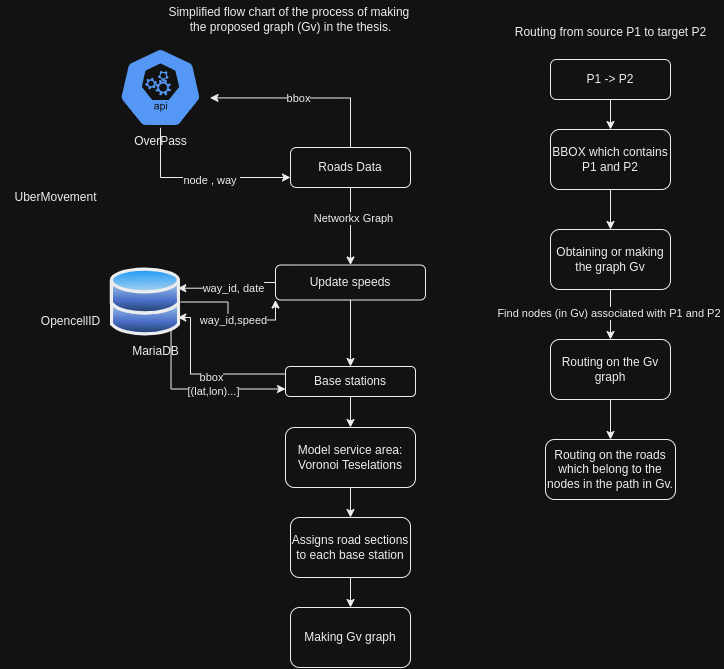Last Modified: 2023-Jun-29
Remember to right click->"open image in new tab" for small images
Índice
Conclusions
| distances | nsamples | Cell Hops New/Old [%] | Cells Used New/Old | Travel Time New/Old | max TT New/Old | Time of Compute New/Old | max ToC New/Old | Bandwith |
|---|---|---|---|---|---|---|---|---|
| 0 < 1km | 1178 | 95.02 | 1.01 | 1.15 | 26.19 | 3.66 | 386.61 | 1.33 |
| 1 km <= 2km | 1766 | 86.21 | 0.92 | 1.24 | 10.95 | 2.26 | 54.30 | 1.23 |
| 2 km <= 3km | 1270 | 77.43 | 0.83 | 1.36 | 8.90 | 1.31 | 66.31 | 1.19 |
| 3 km <= 5km | 2061 | 68.35 | 0.74 | 1.46 | 7.55 | 1.17 | 80.62 | 1.10 |
| 5 km <= 10km | 2595 | 60.47 | 0.67 | 1.60 | 3.99 | 1.22 | 52.98 | 1.07 |
| 10 km <= 15km | 1083 | 54.83 | 0.60 | 1.62 | 3.75 | 1.58 | 86.20 | 0.94 |
| 15km or more | 899 | 50.09 | 0.53 | 1.39 | 2.57 | 1.91 | 40.59 | 0.71 |
My motivation for optimizing cell usage is that the less cells we are going to use throughout our journey, the more resources the system will have available for new riders.
We obtain the next results:
- We have implemented a way use a 2 layer routing algorithm, I hypothesize that this is the path with less number of jumps between cells
- The travelled distance decreases (Highways increase the distance but reduce the time)
- Using highways increases the number of cells involved in the journey.
- Right now,
- Just seeing the bandwith columns, we can conclude that in short commutes it doesn’t make sense, and even in longer ones, a 40% avg increase of travel time is ridiculously high. The cost between the second layer (base stations) nodes is 1. Playing with this weight, for example, making it a function of the average speed of the roads underneath, we would optimize for faster speeds but higher number of jumps between stations.
What the future holds:
- Test with no Voronoi areas of coverage.
- Find a metric for resources usage, maybe this needs first a way to simulate cars. Queu theory.
- Modifying weights in the base station graph
- Simulate cars (auto completing paths, per unit of time), poisson probability of cars starting journey.
- Mix Voronoi area coverages and sphere of influences with a ranged distance, for highly urban areas and remote areas, respectively
